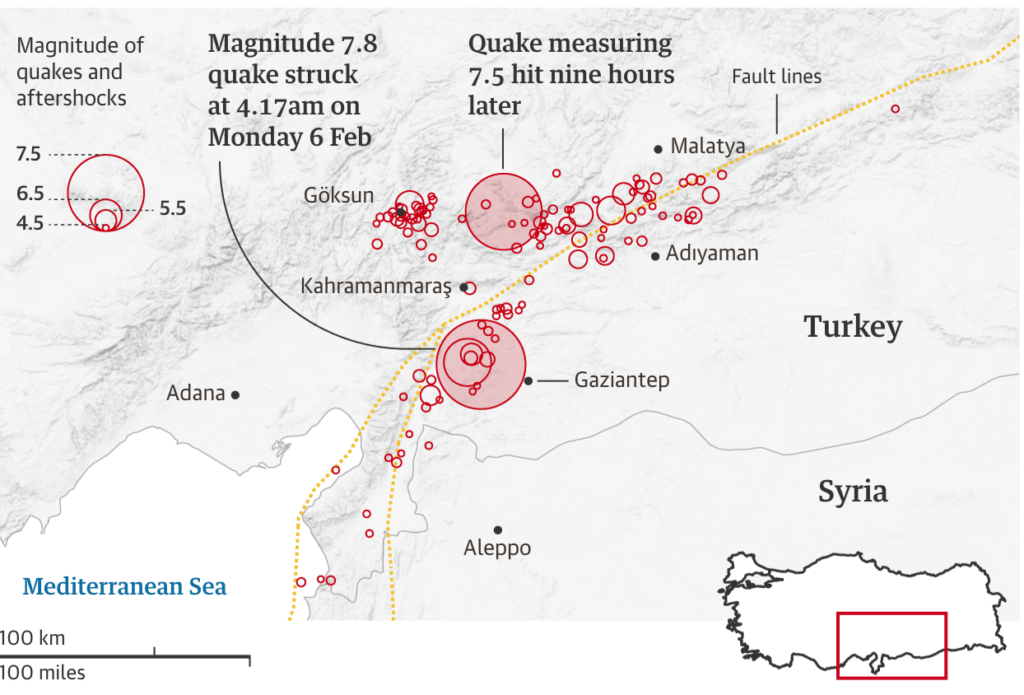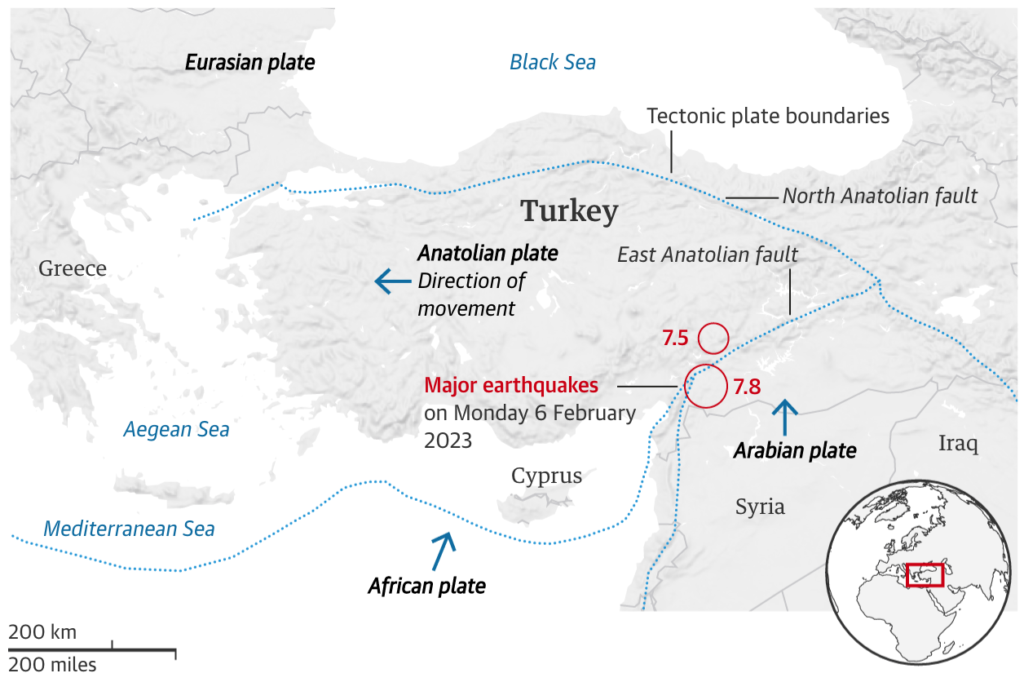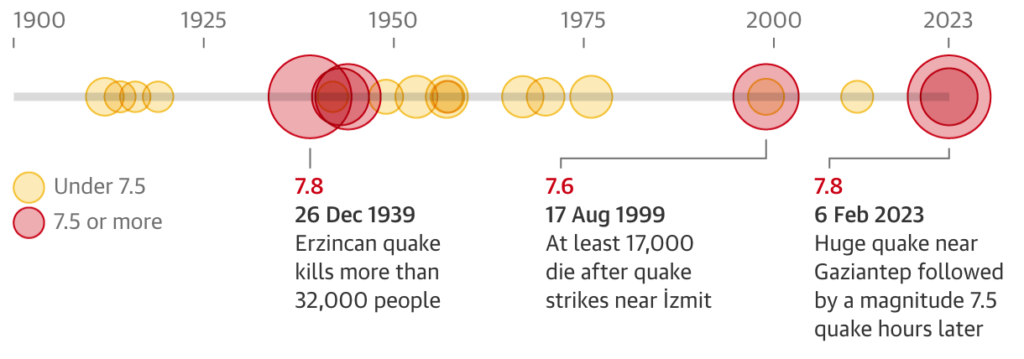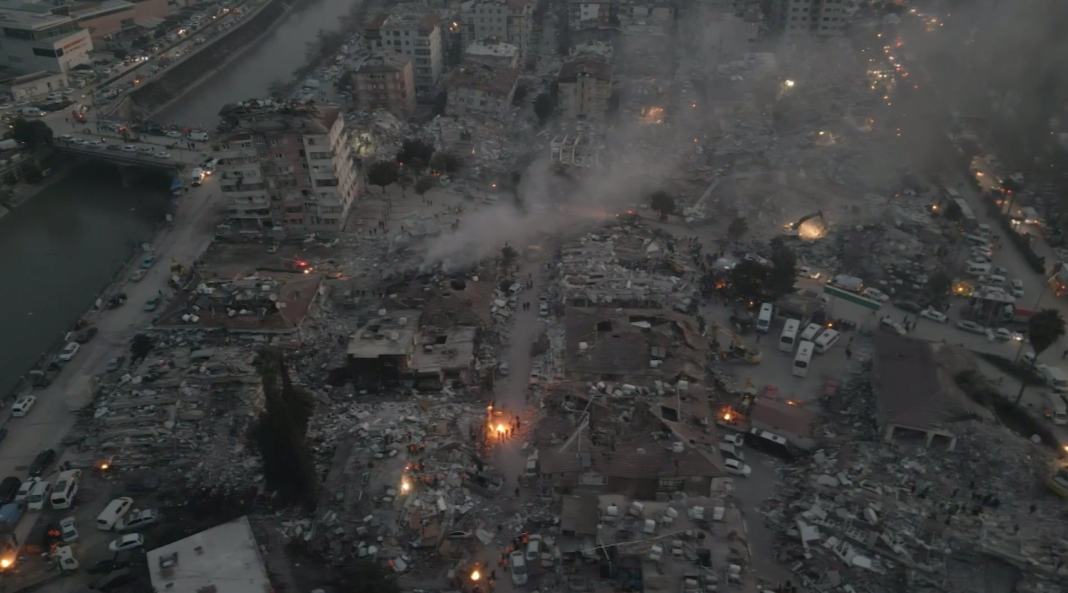« Death toll of 47,000 expected to rise and WHO says 26 million people need assistance across both countries » reports The Guardian on February 20, 2023.
The figures are unfathomable: 47,000 people dead, thousands of others missing, millions homeless. In minutes, two massive earthquakes that rocked Turkey and Syria turned entire cities into mounds of rubble. Two weeks later, the scale of the devastation is still being unearthed. The true impact will not be fully understood for decades.
How many people have been affected?
Turkey’s death toll has climbed above 41,000, the country’s disaster authority has said. This number is expected to rise further, given that more than 345,000 apartments were destroyed and many people are still unaccounted for. In Syria, already devastated by years of war, authorities have said more than 5,800 people died.
Hans Kluge, the World Health Organization’s Europe director, said relief workers were facing “the worst natural disaster in the region for a century”, adding that 26 million people need assistance across both countries. The WHO launched the largest rescue operation of its kind in the organisation’s 75-year history.
In Turkey alone, an estimated 1 million people are living in tents and temporary shelters, while at least 80,000 injured people are in hospital. There is widespread anger and frustration against the Turkish government. In Syria, up to 5 million people may be homeless, many already internally displaced after fleeing civil war.
What is the longer-term fallout?
The earthquake opened two enormous fissures on Earth’s surface, where the land split by up to seven metres in opposite directions over the span of hundreds of miles.
More than 4,300 aftershocks have hit the disaster zone since the initial earthquake, complicating the rescue effort.
Thousands of aftershocks have hit the region in the days since the two earthquakes

Imams in mosques around the globe have performed absentee funeral prayers for the dead in Turkey and Syria, many of whom could not receive full burial rites.
Turkey’s fault lines and tectonic plates

Days after the quakes, there are growing concerns over health issues linked to cold weather, hygiene and sanitation, and the spread of infectious diseases.
The UN has launched appeals totalling about £1.25bn to help the survivors in both countries.
Is aid getting into Syria?
Millions of Syrians are homeless through a combination of the earthquakes and the long-running civil war, and the humanitarian situation is desperate.
Last week, Syria’s dictator, Bashar al-Assad, was persuaded to open two more border crossings with Turkey so more aid could reach the north-west, where 12 years of bitter fighting have complicated the international relief effort.
However, the UN World Food Programme has warned that local authorities in north-west Syria are not giving the required access to aid convoys.
Why is there growing anger in Turkey?
The Turkish toll now far exceeds the 31,643 killed in a quake in 1939. And on Saturday, Ankara announced that it had ended rescue efforts in all but two of the hardest-hit provinces, with search and rescue teams still working in the cities of Antakya and Kahramanmaraş. Hopes of finding more survivors are extremely low, as officials turn to how to repair the devastation.
Meanwhile, shock around the disaster has turned into frustration, with Turkish citizens accusing the government of evading accountability over poor building standards.
Turkey has been hit by 21 earthquakes of magnitude 7 or higher since 1900

Critics accuse the government of not enforcing building regulations and not doing enough since the last major earthquake in 1999 to make buildings more resistant to shaking. In 2018, the government agreed to an amnesty for unregistered construction work – a move that engineers warned would endanger lives.
Reuters contributed to this report
The Guardian, February 20, 2023.

